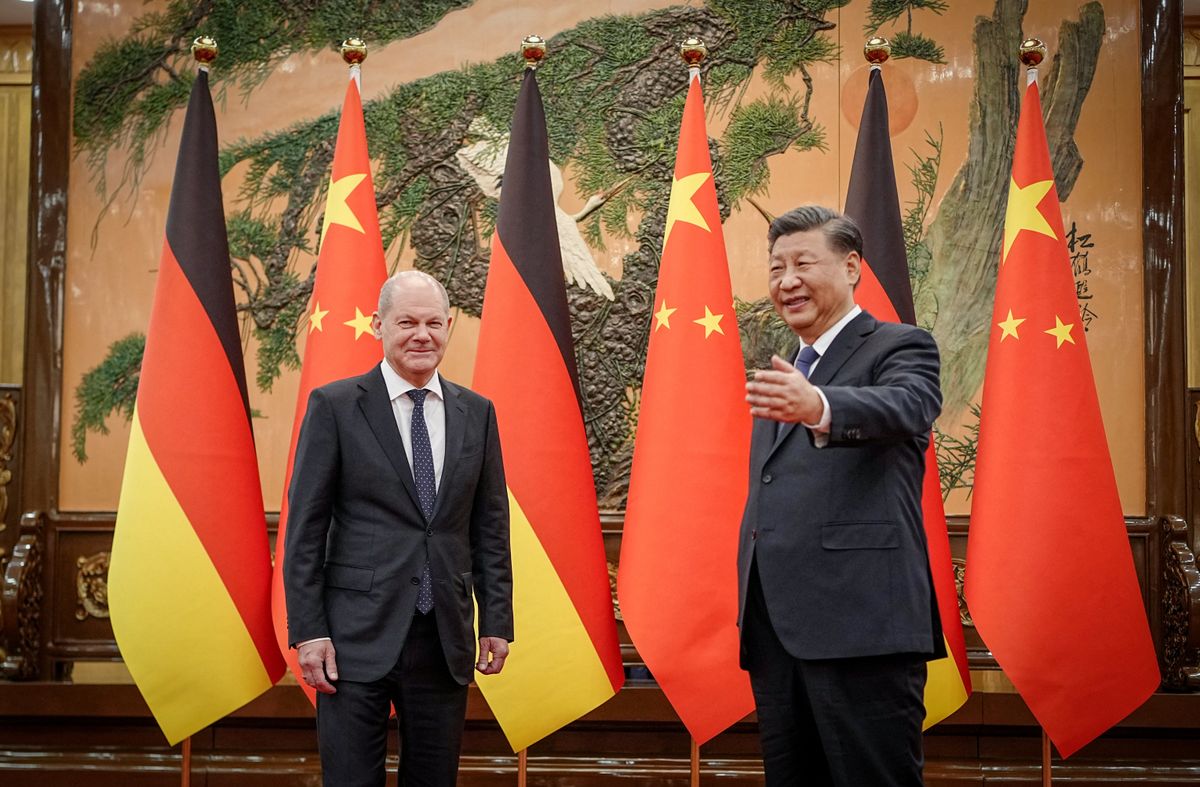Germany’s Chancellor Scholz visits Bejing on a controversial trip
Scholz is the first G7 leader to visit China since the pandemic started and the first to meet with Xi after securing his third term in office.

A few minutes every morning is all you need.
Stay up to date on the world's Headlines and Human Stories. It's fun, it's factual, it's fluff-free.
Last week, Germany approved China's state-owned shipping giant Cosco to buy a 24.9% stake in the Hamburg port. After the deal, German and European officials were worried about Berlin's increasingly close ties with China. On Friday, despite criticism and objections from many of Germany's allies, politicians and even his own coalition, German Chancellor Olaf Scholz went on a controversial trip to Beijing as planned. Scholz and some top German CEOs, including Deutsche Bank, Volkswagen, BMW and BioNTech, met with China's President Xi Jinping to discuss a range of issues. The meeting signals Germany's effort to stabilize supply chains and strengthen its business relationship with China.
Scholz is the first G7 leader to visit China since the pandemic started and the first to meet with Xi after securing his third term in office. At the meeting, Xi called on the world to oppose the use of nuclear weapons in Ukraine and spoke on the need to stabilize the energy and food supply chain with Germany. This is the most direct comment Xi has made on the Russian-Ukraine war. Xi's comment shows a common ground with the bloc on this conflict, although he didn't criticize Russia directly.
Germany's close business relationship with China has grown concerns over its future economy, especially after the consequences of its decades-long energy dependence on Moscow. There are worries that Germany is repeating history by depending on China as its biggest trading partner.
Key comments:
"We will continue economic exchange with China ... But it's also clear, we're going to position ourselves to be able to deal with a situation at any time where there are difficulties – whether it's 10 years from now or 30 years," said German Chancellor Olaf Scholz
"President Xi and I agree: nuclear threats are irresponsible and incendiary," Scholz said after the meeting. "By using nuclear weapons, Russia would be crossing a line that the community of states has drawn together."
"The invitation of a German trade delegation to join your visit will be viewed as an indication that Germany is ready to deepen trade and economic links, at the cost of human rights and international law," wrote a coalition of 70 civil rights groups in an open letter published by the World Uyghur Congress.
"Politics and economics have to be looked at together and cannot be taken separately any longer," said Jürgen Matthes, head of global and regional markets at the German Economic Institute. "When geopolitics comes into play, the view of China has very much declined and become much more negative."




Comments ()